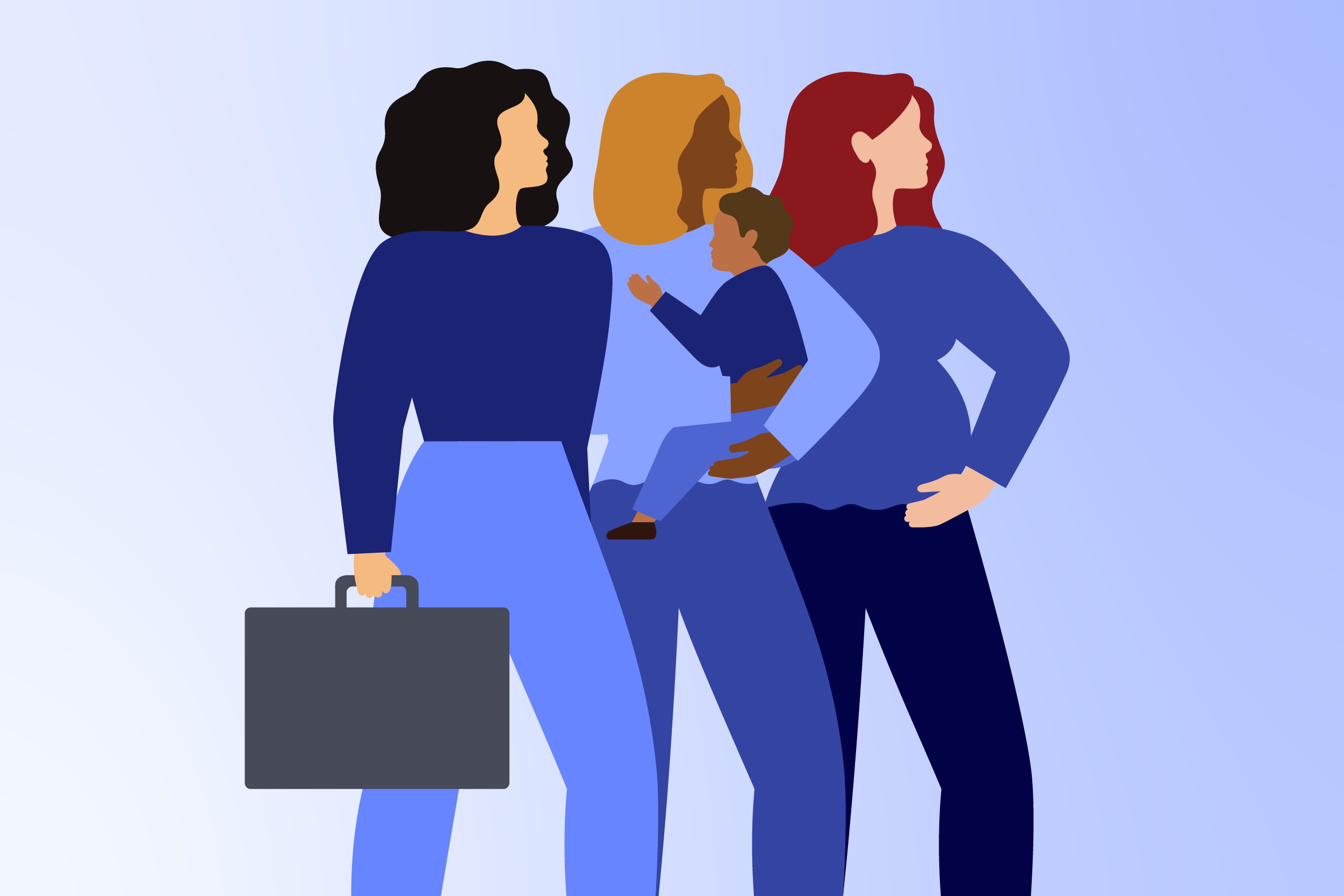When my maternity leave ended after my first baby, I was prepared for the struggle of the first daycare dropoff, the feeling of being pulled in too many directions as a working mom and even the inevitable slight decline in my work quality until the baby started sleeping through the night.
What I did not expect was to be six months into life as a working mom and find myself so mentally and emotionally drained that my only option was to make a career change.
No matter how much you prepare and manage your expectations, there are things that completely blindside you as a new mom. For a lot of women, one of those things is the toll their work suddenly starts to take on their mental health. Maybe the job is no longer stimulating, you’ve lost your drive because you’d rather be home or your boss is putting too much pressure on you now that your priorities have shifted. Whatever the reason, ignoring your mental health isn’t really an option as a new mom because there is a tiny human whose survival literally depends on you.
For me, I was shocked to discover my introvert-battery didn’t have enough of a charge to get me through a day of being a present mom, wife and on-site employee.
As much as I loved the baby snuggles, I was feeling touched out. Even though I needed to interact with other adults, I was too drained to engage with my co-workers. Despite how supportive my husband was, I was resentful that he wasn’t struggling the way I was. This wasn’t healthy or sustainable, and since I didn’t want to walk away from motherhood or my marriage the only other variable I could change in this situation was my job.
Despite my ever-present low battery, I had no interest in leaving the workforce, so I had to evaluate my situation to determine where I needed to make changes in order for me to be fulfilled and healthy as a working mom.
Here was my process:
- Identify my general feelings: Exhaustion, overwhelm, anger, resentment, on-edge/tense
- Pinpoint the things I need to do to help me feel better: Rest, self-care, enough time to meet all of my demands (including regular therapy sessions to improve mental health)
- Establish what I need in a job to help me feel better: Remote role (to get alone time while working) with a flexible schedule (to get everything done without sacrificing quality across all areas of life)
The company I was working for at the time did not allow employees to work from home, and their definition of flexibility was very different from mine. This meant I had to look for a job that met my unique needs while still showing up to the one I had, despite how miserable I was.
To say this particular job hunt was tough is a serious understatement. I was in a niche role, so I couldn’t just take my experience to another, more remote-friendly company. I had to make a big change that I hadn’t anticipated or prepared for, and I had to figure out what kinds of jobs I could even qualify for outside of my industry.
- I stripped down my resume to the studs, taking out all of the accomplishments and fluff
- I evaluated my skill set and thought about what kinds of jobs they’d help me qualify for
- I narrowed down job possibilities by weighing them against my interests
- I found ways to revamp my resume and market myself for these jobs, despite having no formal experience in them
It was tempting (like, really tempting) to jump on the first few opportunities I was presented with during this time because I was desperate to get out of my current situation. Since I was making such a dramatic career shift, I was also dealing with imposter syndrome which made it even harder to stay confident in my job search. Somehow, I managed to hold out long enough to land a full-time remote job with a flexible schedule. I had to take a bit of a pay-cut and the role was only vaguely related to the new direction I wanted to take my career, but it was a start.
Today, that baby is four years old and the job I left is simply a timestamp on my resume that is totally unrelated to the industry I work in now (an industry that I happen to love). I haven’t gone back to an on-site job since then and I know my family and my mental health are better off that way, especially now that I’m an introverted mom to two little kids who have a real knack for draining my battery.
No matter what your circumstances are, even on your best days being a working mom comes with a lot of challenges. Still, if it’s getting to be too much, to the point where your mental health and wellbeing are suffering, don’t be afraid to take a step back, reevaluate and redirect your career. It’s certainly not an easy process, but it’s a short-term loss for a long-term gain. Just imagine how much more manageable working motherhood will feel when you’re in a job that actually supports your new life as a mom rather than just tolerates it.
Ashley Ziegler is a full-time writer with a passion for telling stories through the lens of motherhood to help fellow moms feel seen and understood (especially the ones who, like her, are totally winging it).



